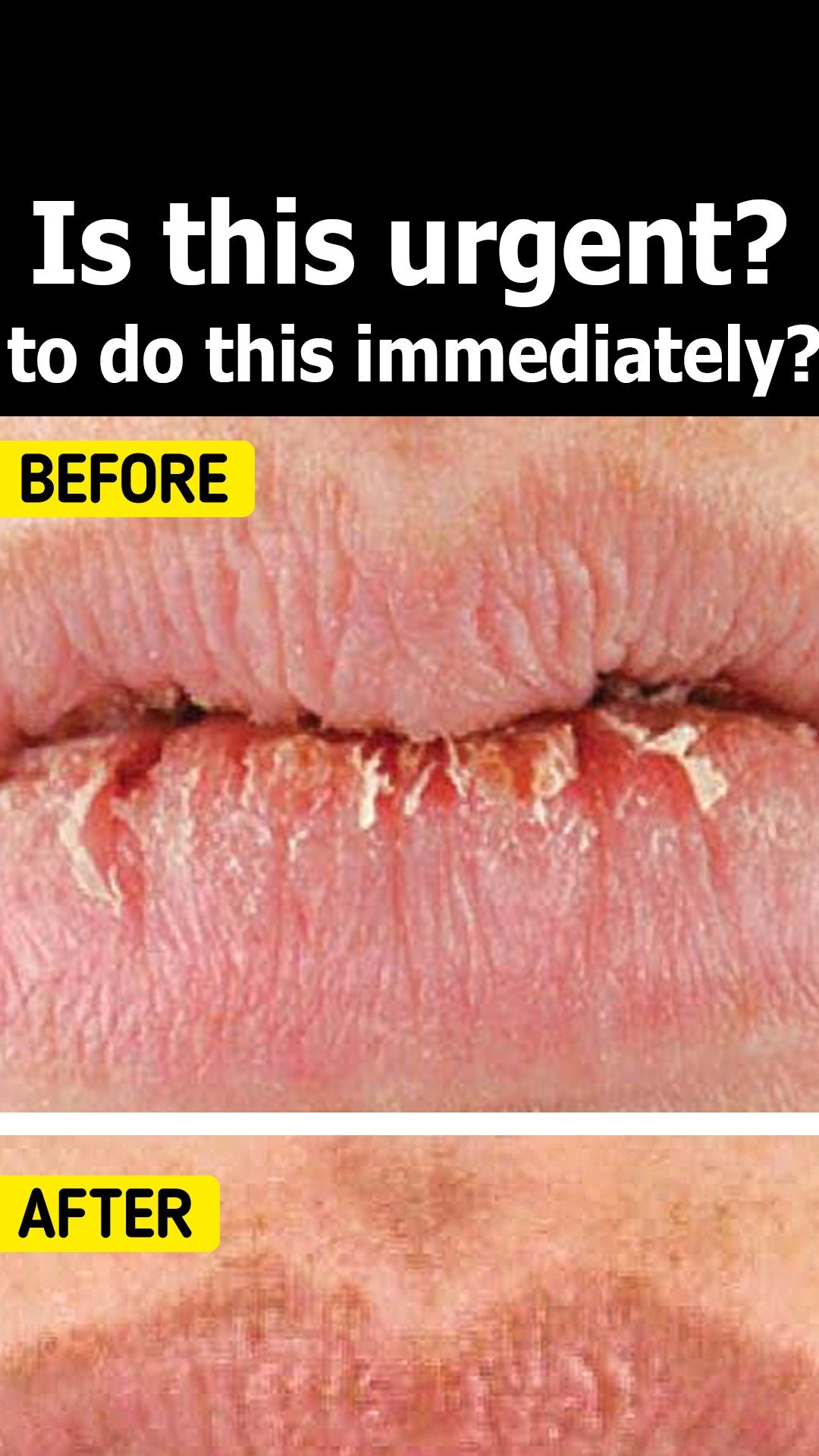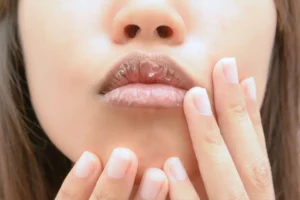
Cracked lips can become more common when the weather is dry. Staying hydrated and using a humidifier may help alleviate this issue. Other causes of chapped lips include dehydration and vitamin deficiencies.
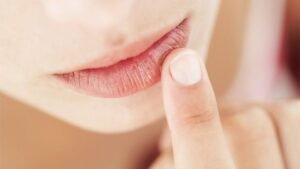
Chapped Lips Explained
Chapped, or cracked, lips refer to dry lips. This condition can be caused by several factors, including:
- Weather
- Excessive licking of the lips
- Certain medications
Chapped lips are a common condition for most people. However, some individuals may develop a more severe form called cheilitis, which can result from an infection and is characterized by cracked skin at the corners of the lips.
Treating Chapped Lips
You can usually treat dry lips with simple measures. If your lips remain severely dry and cracked, it’s advisable to consult a dermatologist.

Symptoms of Chapped Lips
Common symptoms include:
- Dryness
- Flaking
- Scales
- Sores
- Swelling
- Cracks
- Bleeding
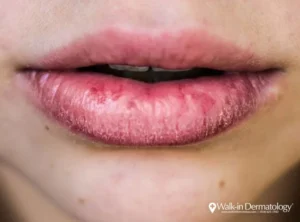
Causes of Chapped Lips
Lips lack oil glands, making them more prone to drying out and becoming chapped. Lack of moisture exacerbates the problem, whether it’s due to weather or poor self-care. Low humidity in winter and frequent sun exposure in summer can worsen the condition. Habitual licking is another common cause, as saliva strips the lips of moisture.

Risk Factors for Chapped Lips
Anyone can get chapped lips, especially those with dry skin. Certain medications also increase the risk, including:
- Vitamin A
- Retinoids (Retin-A, Differin)
- Lithium (used to treat bipolar disorder)
- Chemotherapy drugs
Dehydration and malnutrition also make individuals more susceptible to chapped lips. Seek medical advice if you suspect these conditions.
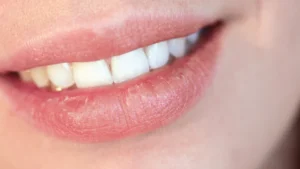
When to Seek Medical Treatment
Cheilitis
If severe dryness and cracking persist despite self-care, see a dermatologist. Cheilitis, characterized by cracked skin at the mouth corners and multiple lip cracks, may be the cause. Symptoms include dark pink or red lips, a lumpy texture, ulcers, and white plaques. Infections and inflammatory diseases like Crohn’s disease often cause cheilitis. Dental trauma and excessive saliva production can worsen chapped lips. Adults and children with orthodontic braces, dentures, or pacifiers are particularly vulnerable. A dermatologist can diagnose whether you have chapped lips or cheilitis.

Dehydration and Malnutrition
Dry lips can also result from dehydration or malnutrition. Dehydration symptoms include:
- Lightheadedness
- Constipation
- Decreased urine production
- Dry mouth
- Headache
Severe dehydration can cause low blood pressure, fever, rapid breathing, or a rapid heartbeat.
Malnutrition shares similar symptoms with dehydration, with additional signs such as:
- Muscle weakness
- Decaying teeth
- Bloated stomach
- Bone fragility
Vitamin deficiencies can lead to malnutrition, so those on restricted diets, such as vegetarians, must ensure adequate vitamin intake. Alcohol addiction and decreased appetite in older adults also heighten the risk of malnutrition. Consult a doctor if you suspect dehydration or malnutrition.
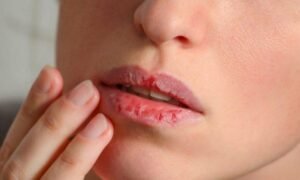
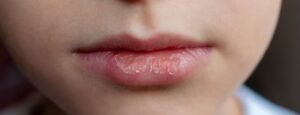
How to Treat and Prevent Chapped Lips
Chapped lips can usually be treated at home. Ensure your lips stay moisturized by:
- Applying lip balm throughout the day
- Drinking more water
- Using a humidifier at home
- Avoiding cold weather or covering your mouth with a scarf
Sun exposure can also cause chapped lips, especially with age. Use a lip balm with at least SPF 15 before going outdoors to moisturize and protect your lips.
